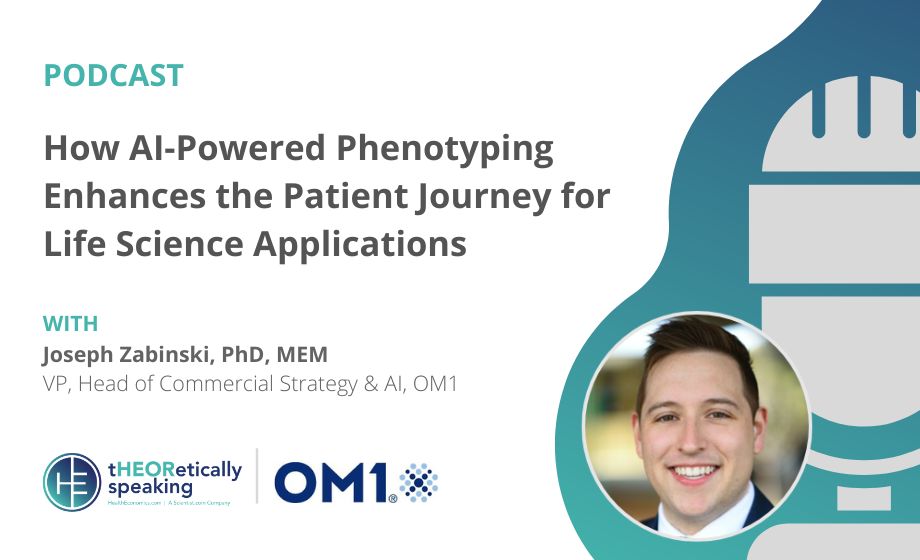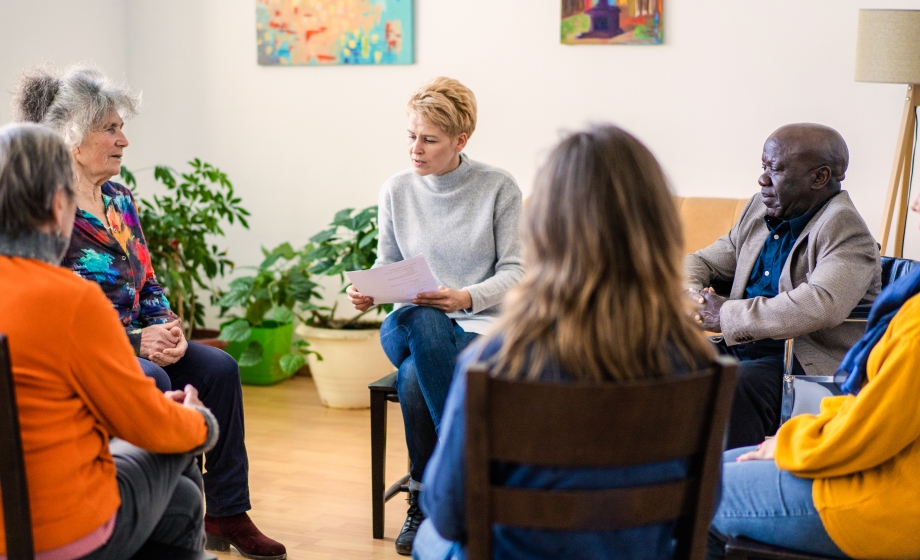How AI-Powered Phenotyping Enhances the Patient Journey for Life Science Applications
In this episode of tHEORetically Speaking, Dr. Joseph Zabinksi, VP and Head of Commercial Strategy and AI at OM1, explains how AI-powered digital phenotyping can enhance our understanding of patients' experiences and inform access, treatment, and condition management.
Chiesi Focuses on Patient-Centered Care in Fabry Disease
Chiesi Global Rare Diseases has published survey results in the Orphanet Journal of Rare Diseases that [...]
Forecast of the Global Real World Evidence (RWE) Solutions Market
The Global Real World Evidence (RWE) Solutions Market is forecasted to grow from 2.7 billion (USD) [...]
Practical AI: Adding Insight to the Patient Journey with Digital Phenotyping
In this webinar, Dr. Joseph Zabinski will discuss the digital phenotyping process and several concrete applications to demonstrate how AI can add value to analyses of the patient journey across the life sciences spectrum.
Study Reveals Racial Disparities in Prostate Cancer Care
A landmark study conducted by Analysis Group has highlighted significant racial disparities in the treatment and [...]
European Regulators Find No Link Between GLP-1 Drugs and Suicidal Ideation
European Medicines Agency (EMA) investigations have concluded that GLP-1 class drugs, like Ozempic and Wegovy, used [...]
Unexpected H5N1 Bird Flu Cases in U.S. Cattle and Humans
The recent detection of H5N1 bird flu in U.S. dairy cattle, with at least one human [...]
Study Reveals Political Affiliation Influences COVID-19 Vaccine Adverse Event Reporting
A recent study published in JAMA Network Open indicates that political affiliations may significantly influence the [...]
EU Spearheads Real-World Evidence Projects to Revolutionize Healthcare Decision-Making
The European Union is in charge of integrating real-world evidence (RWE) and advanced data analytics into [...]
Podcast Q&A: Patient-Centered Real-World Evidence in Rare Diseases
In this episode of tHEORetically Speaking, join Drs. Megan Gower and Edward Chou from Takeda, and Richard Tsai, MS from Inspire, who answer questions from a recent webinar on the challenges and solutions for generating patient-centered real-world evidence (RWE) in the context of rare diseases, to support clinical development through commercial post-approval.
Podcast Q&A: Real-World Evidence Generation with Disease Registries
In this episode of tHEORetically Speaking, join Drs. Javier Cid, Nahila Justo, and Delphine Saragoussi from Evidera and PPD, who answer questions from a recent webinar on why strong connections with registry groups and stakeholder populations are important for generating relevant real-world evidence to advance treatments.
Beyond Accelerated Approvals: External Control Arms
Hear this panel's discussion on the strategic use of external control arms and, if done correctly, how they can help bring products to market in a shorter time and for lower costs.
Pain Points Associated with Analyses of Real-World Data Sources: A Survey
To inform an upcoming ISPOR 2024 workshop, David Thompson of Rubidoux Research is fielding a brief survey to solicit [...]
GSK Advances Oligonucleotide Research with Elsie Biotechnologies Platform License
GlaxoSmithKline (GSK) has solidified its commitment to oligonucleotide therapeutics by securing a nonexclusive license to Elsie [...]
Delphi Panels: What Are They Good For?
In this webinar, experts deep dive into Delphi panel methods, their implementation, and pharmaceutical industry insights on the panels' use and outcomes.
3rd Diversity in Clinical Trials
There has never been a greater time or need than now for pharma to move the needle on making clinical [...]
3rd Real World Evidence and Market Access
RWE serves as a multifaceted tool, enhancing safety and efficacy data, demonstrating a product’s value and cost-effectiveness to payers, and [...]
8th Digital Strategy & Innovation for Medical Affairs
DGE’s 8TH Digital Strategy & Innovation for Medical Affairs Summit is the largest and most impactful industry event for transforming [...]
Patient Voices Matter: Transforming Industry-Sponsored Real-World Evidence with Patient-Centric Approaches
In this webinar, panelists address integrating patient-centered research into real-world studies, focusing on diversity, equity, and inclusion (DEI), and developing systemic approaches for a more equitable research ecosystem.
Can We Trust the Data? The Case for Validation
Real world research has produced recent newsworthy findings on topics as diverse as COVID, mental health, cancer, and dementia. [...]
Trinity Life Sciences Reports Promising Opportunities in China’s 2022 NRDL for Innovative Drugs
Trinity Life Sciences, a global life sciences solutions leader, reports promising opportunities for innovative drugs in [...]
Exploring the Potential and Challenges of mRNA Technology in Revolutionizing Flu Vaccines
The article discusses the potential of mRNA technology, popularized during the COVID-19 pandemic, in revolutionizing flu [...]
Respiratory Viruses Return to Seasonal Patterns After Covid-19 Disruption
During the height of the COVID-19 pandemic, other respiratory viruses such as the flu, RSV, and [...]
Reagan-Udall Foundation Calls for Overhaul of Post-Market Evidence Generation System, Suggests FDA-Led Approach
The Reagan-Udall Foundation asserts in a new report that the current post-market evidence generation system is [...]




























